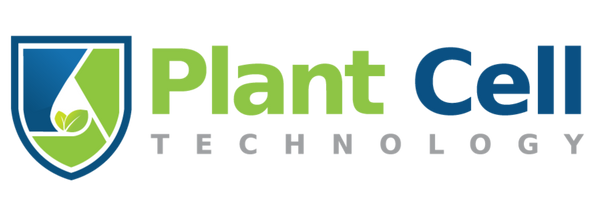Table of Contents
Whether you are involved in the commercial plant propagation industry or just a simple guy who enjoys tissue culture, you will know that tissue culture contamination (whether bacterial or fungal) can be an unrelenting issue. Contaminated water diseases are a problem that have been plaguing plant propagations since the dawn of agriculture.
What can you do to mitigate lab contamination if you have kept your plant tissue culture equipment sterilized, strictly adhered to protocol, but are still facing a contamination problem?
Before PPM™ became a popular alternative for the tissue culture lab, fungicides and antibiotics were commonly used. Thankfully, we now have PPM™ to turn to instead. Although fungicides and antibiotics seemed to ‘get the job done,’ there are several reasons they are inferior to PPM™.
Fungicides and antibiotics have a fair share of drawbacks, and this article highlights the reasons you should use PPM™ instead of antibiotics.
Some of the disadvantages of using fungicides and antibiotics are:
- Plants mutate to develop strains that are resistant to antibiotics.
- Antibiotics and fungicides alter plant growth.
- They are expensive; since antibiotics do not eliminate fungal spore growth, you must purchase both antibiotics and fungicides to protect your plants.
- Antibiotics should not be used long term and are therefore not a sustainable option.
Why You Should Use PPM™:
PPM™ is a broad-based solution that is more affordable than antibiotics. Despite its cheaper price, it is more effective, as it can eliminate and prevent fungal contamination as well. PPM™ can be added prior to autoclaving and can be used to sterilize tissue culture media and plant matter even when separating and transferring without harming the fragile plant matter.
What makes PPM™ so effective against waterborne contamination?
PPM™ is formulated with isothiazolinones (broad-based biocides) to control contaminations. Waterborne contaminations should be easily avoidable, but if your tissue culture batches do come into contact with waterborne microbial contamination, then PPM™ can eradicate your problem, and possibly even prevent future contaminations.

How to Use PPM™ for Water Contaminations:
PPM™ is specially formulated so that it is an effective and non-toxic solution for the prophylactic control of most contaminations, including contamination that results from impure water. Plant tissue cultures are highly susceptible to all sorts of contamination, and even if you use purified water, there could still be a risk that your tissue cultures are exposed.
By adding a routine dose of PPM™ to your plant tissue cultures, you could gain full control and eliminate contaminations, including microbial, bacterial, fungal, and endogenous.
Water Sources
Common water sources are generally divided into two types: ground water and surface water.
Groundwater will usually come from a well while surface water will typically come from rivers, basins, and reservoirs. Research shows that groundwater may contain high levels of dissolved solids (resulting in high levels of iron and calcium), but low levels of organic, colloidal, and particulate matter. Surface water, on the other hand, will contain less dissolved solids, but more particulate and organic matter.
Both sources could be contaminated with herbicides, detergents, pesticides, fertilizers, industrial waste, and other contaminants.
Irrigation water can often lead to pathogens in your cultures, and statistics show that there has been an increase in contaminated water problems over the last century. The issue with waterborne pathogens has increased dramatically over the past several years. This greatly impacts the agricultural industry, especially as more cultivators have begun to depend on recycled water.
How Do Your Plants Contract Waterborne Pathogens?
A number of sources could put your plants at risk, including irrigation sources and run-offs. A growing number of cultivators rely on recycled water sources. Ecologically, this is a great decision, but ultimately it does put your plants at a higher risk of inoculum exposure.
There are two types of water molds that could arise from recirculated irrigation water: Pythium and Phytophthora.
As we have mentioned before, antibiotics and fungicides can be pricey and not always effective. If your plants are exposed to these water molds for just a short time, then the results can be devastating to the health of your plants.
The following are other common pathogens that come from contaminated water:
- Phytophthora (17 different species); this type of contaminant is usually the result of irrigation water that is contaminated and is usually found in many fruit and vegetable crops.
- Pythium (26 different species)
- Fungi (27 different genera)
- Bacteria (8 different species)
- Viruses (10 different species)
- Plant-parasitic nematodes (13 different species)
Although there is an array of water treatment options, there are not many sustainable solutions for larger scale, commercial cultivations. Often, both economic and technical issues arise, and as such, cultivators are left scratching their heads.
PPM™ is effective for both small scale, and commercial grows and shows promise as a suitable solution for many problems in the agricultural industry. Plant tissue culture needs strict protocol adherence. However, even highly stringent conditions are not a guarantee that stray contamination won’t take place.
This is where the age-old saying, “prevention is better than cure” comes into play. Tissue culture demands the proper prevention for successful cultivation. Take the fate of your plant tissue cultures into your own hands by ordering PPM™ today.












Join the conversation
Your email address will not be published. Required fields are marked